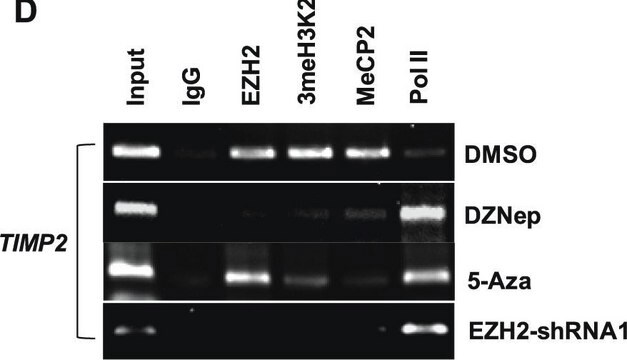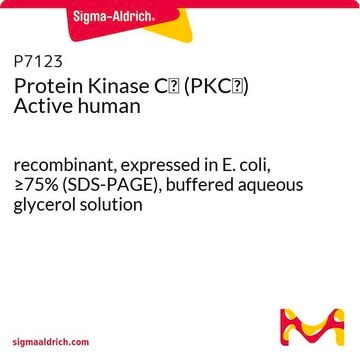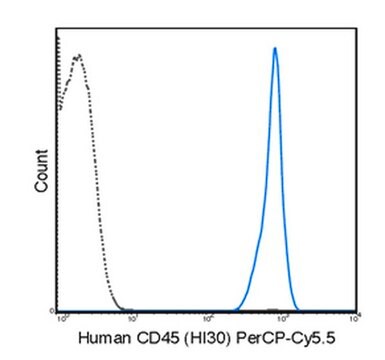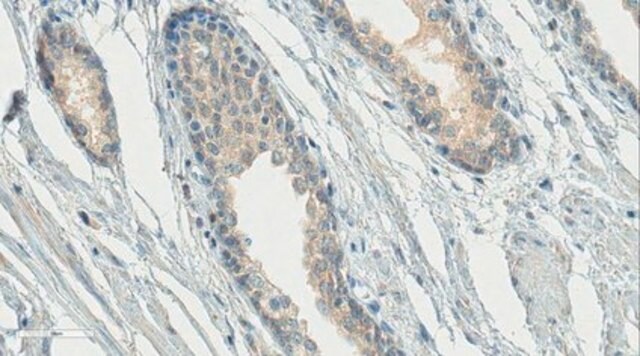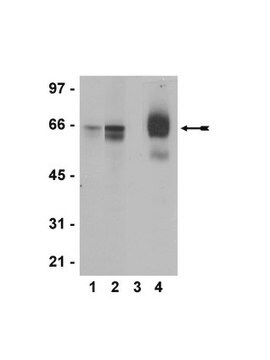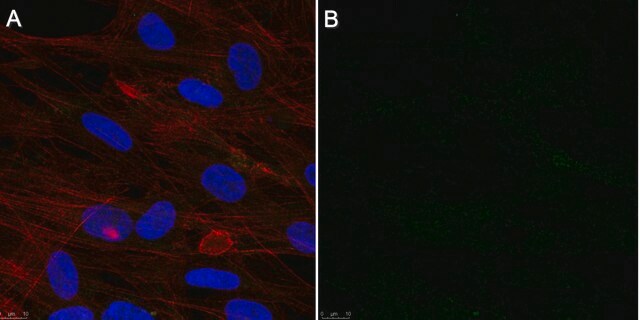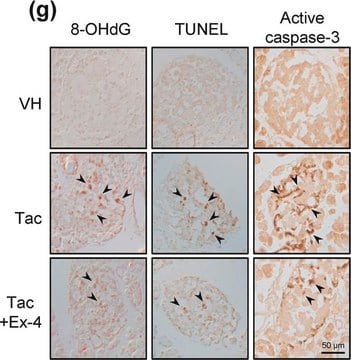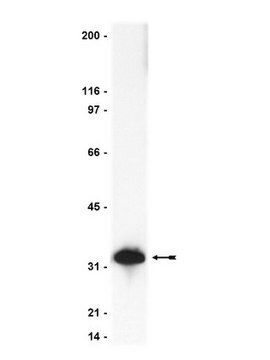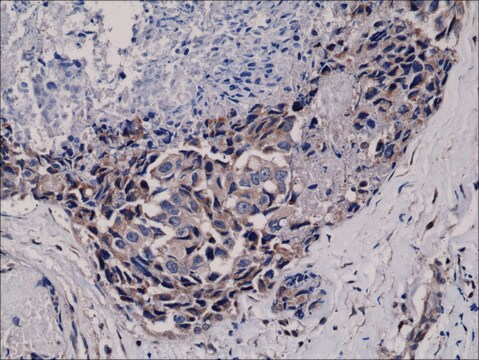05-850
Anti-p68 Antibody, clone204
clone 204, Upstate®, from mouse
Sinónimos:
Anti-G17P1, Anti-HUMP68, Anti-p68
About This Item
Productos recomendados
origen biológico
mouse
Nivel de calidad
forma del anticuerpo
purified antibody
tipo de anticuerpo
primary antibodies
clon
204, monoclonal
reactividad de especies
human, rat, mouse
fabricante / nombre comercial
Upstate®
técnicas
western blot: suitable
isotipo
IgG1
Nº de acceso NCBI
Nº de acceso UniProt
Condiciones de envío
wet ice
modificación del objetivo postraduccional
unmodified
Información sobre el gen
human ... DDX5(1655)
Descripción general
Especificidad
Inmunógeno
Aplicación
Epigenetics & Nuclear Function
Transcription Factors
RNA Binding Protein (RBP)
Calidad
Descripción de destino
Forma física
Almacenamiento y estabilidad
Nota de análisis
Positive Antigen Control: Catalog #12-309, Hela cell nuclear extract. Add an equal volume of Laemmli reducing sample buffer to 10 μL of extract and boil for 5 minutes to reduce the preparation. Load 20 μg of reduced extract per lane for minigels.
Información legal
Cláusula de descargo de responsabilidad
¿No encuentra el producto adecuado?
Pruebe nuestro Herramienta de selección de productos.
Opcional
Código de clase de almacenamiento
10 - Combustible liquids
Clase de riesgo para el agua (WGK)
WGK 1
Certificados de análisis (COA)
Busque Certificados de análisis (COA) introduciendo el número de lote del producto. Los números de lote se encuentran en la etiqueta del producto después de las palabras «Lot» o «Batch»
¿Ya tiene este producto?
Encuentre la documentación para los productos que ha comprado recientemente en la Biblioteca de documentos.
Nuestro equipo de científicos tiene experiencia en todas las áreas de investigación: Ciencias de la vida, Ciencia de los materiales, Síntesis química, Cromatografía, Analítica y muchas otras.
Póngase en contacto con el Servicio técnico